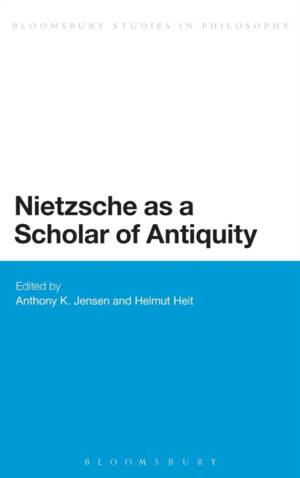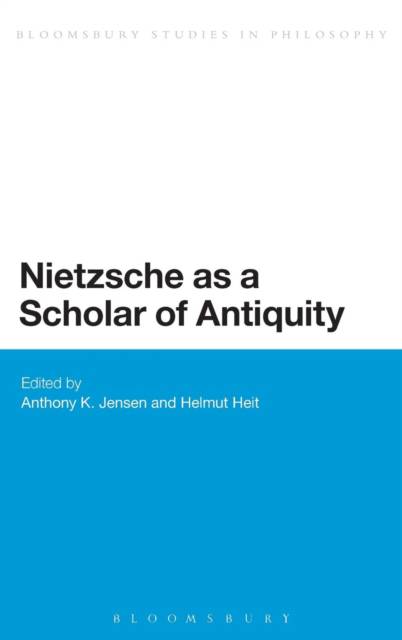
- Retrait gratuit dans votre magasin Club
- 7.000.000 titres dans notre catalogue
- Payer en toute sécurité
- Toujours un magasin près de chez vous
- Retrait gratuit dans votre magasin Club
- 7.000.0000 titres dans notre catalogue
- Payer en toute sécurité
- Toujours un magasin près de chez vous
Nietzsche as a Scholar of Antiquity
296,95 €
+ 593 points
Description
Typically, the first decade of Friedrich Nietzsche's career is considered a sort of précis to his mature thinking. Yet his philological articles, lectures, and notebooks on Ancient Greek culture and thought - much of which has received insufficient scholarly attention - were never intended to serve as a preparatory ground to future thought. Nietzsche's early scholarship was intended to express his insights into the character of antiquity. Many of those insights are not only important for better understanding Nietzsche; they remain vital for understanding antiquity today.
Interdisciplinary in scope and international in perspective, this volume investigates Nietzsche as a scholar of antiquity, offering the first thorough examination of his articles, lectures, notebooks on Ancient Greek culture and thought in English. With eleven original chapters by some of the leading Nietzsche scholars and classicists from around the world and with reproductions of two definitive essays, this book analyzes Nietzsche's scholarly methods and aims, his understanding of antiquity, and his influence on the history of classical studies.Spécifications
Parties prenantes
- Editeur:
Contenu
- Nombre de pages :
- 320
- Langue:
- Anglais
- Collection :
Caractéristiques
- EAN:
- 9781472511522
- Date de parution :
- 27-03-14
- Format:
- Livre relié
- Format numérique:
- Genaaid
- Dimensions :
- 156 mm x 234 mm
- Poids :
- 625 g

Les avis
Nous publions uniquement les avis qui respectent les conditions requises. Consultez nos conditions pour les avis.





